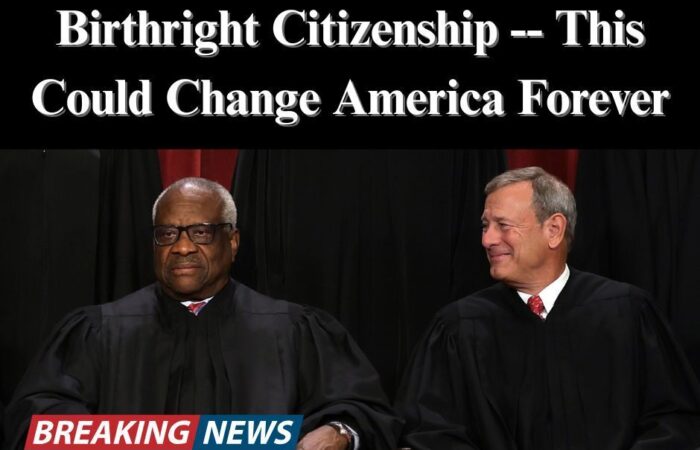
The U.S. Supreme Court has delivered its decision regarding President Donald Trump’s initial executive order that terminates birthright citizenship for the offspring of illegal immigrants.
Trump has achieved a significant victory in the Birthright Citizenship Case. This victory is not based on the substantive issues, but rather on the question of whether a universal injunction is permissible. This holds considerable importance for all cases involving universal injunctions.
Senior Legal Correspondent Margot Cleveland clarified the implications of this ruling, stating, “The US Supreme Court permits Trump’s executive order that limits birthright citizenship to be enforced in certain regions of the country for the time being by restricting federal judges’ capacity to obstruct the president’s policies on a national scale.”
The Supreme Court conducted oral arguments in this matter in May, following the issuance of nationwide injunctions against the order’s enforcement by three lower federal courts.
In an executive order signed on Inauguration Day, Trump asserted that the provision of the 14th Amendment, which grants U.S. citizenship to children born on American soil, is applicable solely to those who have at least one parent who is a citizen or a permanent resident.
Should it be enacted, Trump’s policy would prevent citizenship at birth for approximately 255,000 infants born each year in the U.S. to illegal immigrants or temporary visa holders, as reported by the Migration Policy Institute.
According to the 14th Amendment, ratified in 1868, “all persons born or naturalized in the United States, and subject to the jurisdiction thereof, are citizens of the United States.” For more than a century, this provision has been interpreted to confer citizenship at birth to all individuals, with the exception of children of foreign diplomats, as noted by the WSJ.
However, supporters of Trump’s order contended that the historical context of the amendment was intended to provide citizenship to the children of former slaves, and that this provision has been misused by illegal migrants who take advantage of it to establish a presence in the U.S. by having a child on American soil.
Trump’s executive order is also founded on the premise that illegal immigrants are not “subject to the jurisdiction” of the United States for the purposes of citizenship, implying that their offspring should not automatically receive citizenship at birth.
The White House contends that the citizenship clause was intended to counteract the Supreme Court’s notorious 1857 ruling in Dred Scott v. Sandford, which determined that black individuals could not be citizens, while not granting citizenship to foreigners lacking permanent legal residency.
In 1995, in reaction to proposed legislation aimed at abolishing birthright citizenship for the children of unauthorized immigrants, the Justice Department indicated that such a modification would necessitate a constitutional amendment. Nevertheless, Trump has long speculated about the potential to limit birthright citizenship.
“It was always conveyed to me that a constitutional amendment was required. Guess what? It is not,” he stated in a 2018 interview. “It’s in the works. It will occur, through an executive order.”
States led by Democrats and immigrant advocacy organizations initiated several lawsuits to challenge Trump’s order, and federal judges in Maryland, Massachusetts, and Washington state promptly halted it, declaring it likely unconstitutional and prohibiting its nationwide enforcement.
In February, two law professors from Georgetown Law School and the University of Minnesota delivered a startling revelation to Democrats who ridiculed Trump’s order.
The professors authored an opinion piece for The New York Times that likely astonished the publication’s liberal audience, who encountered a headline proclaiming, “Trump might have a case on birthright citizenship.”
“When the justices finally deliberate on this matter, they will discover that the argument supporting Mr. Trump’s order is more robust than his detractors comprehend,” the professors remarked, referring to a case that is expected to be presented to the U.S. Supreme Court.
Regarding illegal immigrants, the Amendment becomes complex, as stated in the article.
“Has an individual from another nation who has breached the laws of this country to enter and unlawfully reside here committed to adhering to the laws in return for the protection and advantages those laws provide?” the professors remarked.